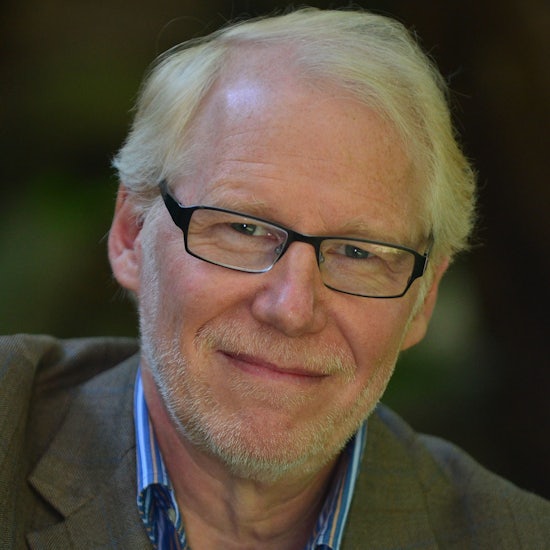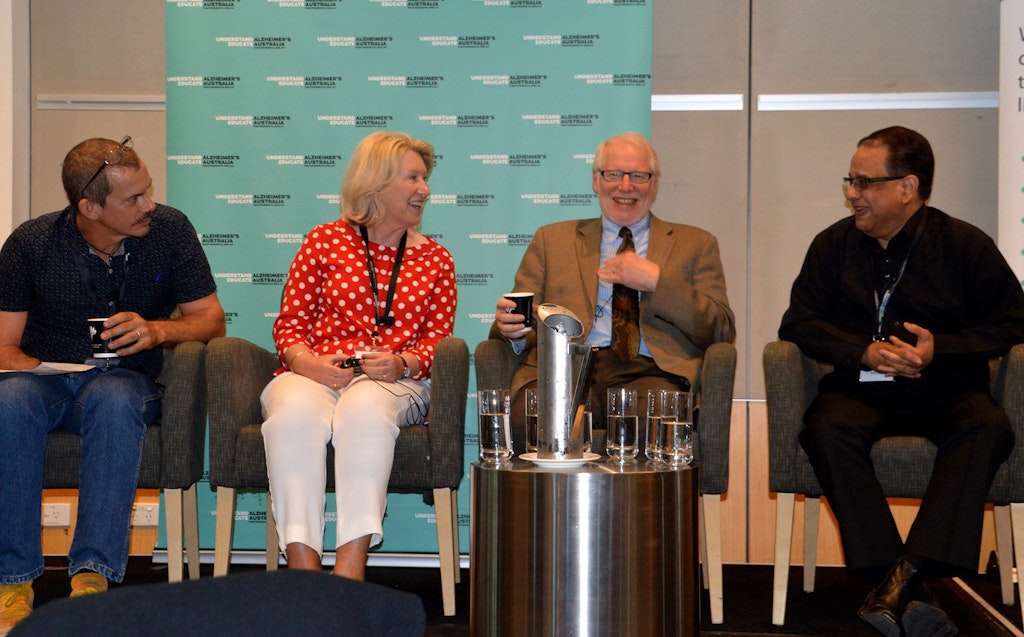Treating the cause not the symptom
International leading dementia expert Dr Al Power, Clinical Associate Professor of Medicine at the University of Rochester, New York, has been challenging traditional care models and warning about the over use of anti-psychotic medications in masterclasses, symposiums and a variety of meetings held in Australia.

Dr Al Power
While person centred care came in around 20 years ago, Dr Power doesn’t believe it is happening in practice. “There is a gap between academic philosophy and what is actually happening; there needs to be a culture change to transform the system,” he says.
Dr Power challenges the idea of people with dementia been kept behind locked doors pointing out the only other people who are locked up are convicted felons. “A person’s not fading away, they still have the same citizenship rights, they just have a cognitive disability,” he says. He is also against segregation in care homes, and believes this contributes to the fear of people with dementia and increases the stigma. “There are 150 causes of dementia but we are saying they need only one type of care,” he says.
Alzheimer’s Australia estimates up to 70,000 people are taking anti-psychotic medicines, however only one in five receive any real clinical benefit from the drugs. Dr Power believes as much as 90 percent of behavioural and psychological symptoms of dementia (BPSD) can be managed without the use of drugs anyway. Using the example of a person who gets stressed because they cannot leave a facility, he says giving a distracting hand massage doesn’t find out the cause of the behaviour.
“Instead we give them a dangerous anti-psychotic,” says Dr Power. “We are stuck in the paradigm that if you’re stressed you have a pill and the pill is the solution.” He believes talking to a person or family will find out why they want to leave and it can be managed. Plus he highlights, we ourselves probably wouldn’t want to be locked up anyway.
“If face to face techniques and communication facilitation skills are used, and people are proactive rather than reactive, I believe half the stress would disappear,” he says.
Dr Power recognises risk concerns for a person with dementia but points out by definition risk is the chance something will turn out different than expected. “There is a downside risk, but something better may happen,” he says.

He points out for a person prone to walking, we have cell phones and GPS aids to decrease the ‘lost’ risk and it may lead to better moods and the person been better physically. “We can’t get rid of risk, but we can negotiate risk up and down,” he says.
However, you can’t take the drugs away without educating staff and families. Dr Power thinks staff rostering also needs to be examined with ideally the same staff caring for the same people. “Strangers coming to bathe you and touch your naked body is stressful,” he points out, and highlights some staff change initiatives are already operating in Australia and they are seeing great results.
Since introducing its dedicated staff assignment model, Arcare Victoria has seen a significant decrease in staff turnover, an increase in quality of care and better resident health and wellbeing.
“It’s about creating a system which enables care,” says Dr Power.
In WA, Dr Power spoke to more than 400 people working the area of dementia as well as people with dementia and their loved ones. “Dr Power raised the bar for everyone who attended working in the area of dementia and changed so many minds about what it means to have dementia and the critical need to protect the rights and wellbeing of each person regardless of their diagnosis,” says Rhonda Parker, Chief Executive Officer, Alzheimer’s Australia WA.
In Victoria, Dr Power facilitated a highly interactive masterclass of around 70 people and also met with politicians to talk about changing the use of anti-psychotics. David Sykes, General Manager Learning and Development, Alzheimer’s Australia Vic says Dr Power challenged some people’s ideas about how to progress and bring in a culture change. “I’m sure there were some ‘light bulb’ moments for many people,” he says. “Dr Power is an excellent presenter, talking about concepts and giving practical examples of how they can be applied. The intimate Masterclass enabled people to ask questions and importantly share their own experiences.”











![The new Aged Care Act exposure draft is slated for release in December of 2023, but advocates hope to see it rolled out on January 1, 2024. [Source: Shutterstock]](https://agedcareguide-assets.imgix.net/news/articles/wp/agedcareact__0811.jpg?fm=pjpg&w=520&format=auto&q=65)












Comments